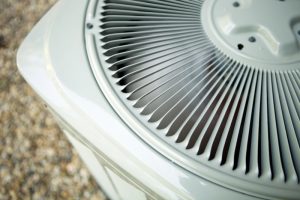 Fall is officially here! Soon the weather will cool, and we can focus on fall activities and using our heaters to keep warm. Chances are, you used your air conditioner consistently over the last several weeks, and we bet you’re looking forward to shutting it off for the season. But before you do, is it showing any signs of disrepair?
Fall is officially here! Soon the weather will cool, and we can focus on fall activities and using our heaters to keep warm. Chances are, you used your air conditioner consistently over the last several weeks, and we bet you’re looking forward to shutting it off for the season. But before you do, is it showing any signs of disrepair?
Don’t brush potential repair needs off. Waiting on them can lead to more severe problems and potentially even a premature system replacement.
The good news is, when your system does need repair, it’s adept at showing you signs and symptoms. While you shouldn’t ever try to formally diagnose or repair a malfunctioning air conditioner on your own (they contain dangerous components like refrigerant, which requires formal training and licensing to handle safely), you can still spot the signs you need AC repair, and take the appropriate steps from there.
Common Signs You Need AC Repair
There are a number of common indicators to watch out for, including:
Low Airflow: Air that isn’t moving through your ventilation system with the power you expect could be indicative of a big problem. It usually means that cold air is trapped within the system, which can cause the coils to freeze and create other related problems.
Additionally, reduced airflow means your system can’t do its job effectively or efficiently. You may try turning the thermostat down thinking that will help, but this only raises your bills and does nothing for your comfort.
One thing you can check and try on your own is changing the air filter. When the filter becomes to clogged up with dust and other debris it can absolutely cause low airflow. If you’ve eliminated this as a possibility though, it’s time to give us a call.
Reduced Cooling: This problem is similar to low airflow in that it’s a problem and the symptom of potential other problems. It might be caused by low refrigerant, overheating components, or even damage to your ductwork.
The way you detect reduced cooling is simple—is the air coming out of your vents warmer than you’d expect? If so, it’s time to call in a professional HVAC technician.
Short-Cycling: This is the process in which your air conditioner turns off and on in rapid succession. Air conditioners use more energy turning on and turning off than they do running, so you want yours to run for at least 15 minutes at a time. Otherwise, it’s typically the sign of something seriously amiss.
Odd Noises: No air conditioner is silent. You’re always going to hear the hum of the fans and the air whooshing through the ventilation system. But if you also hear noises like banging, clanging, hissing, or buzzing, it’s a sign of something more serious that warrants a call to our pros.
Higher Energy Bills: Sometimes, a problem with your air conditioner won’t show any outward signs, but can translate into more energy being consumed than normal. In these cases, you’ll most likely notice the problem by spotting an unexpected increase in your monthly energy bills—particularly if you haven’t run your air conditioner any more than usual.
Need reliable AC repairs in Sacramento? Contact Sierra Pacific Home & Comfort, Inc.—The Guys in the Big Red Trucks!
